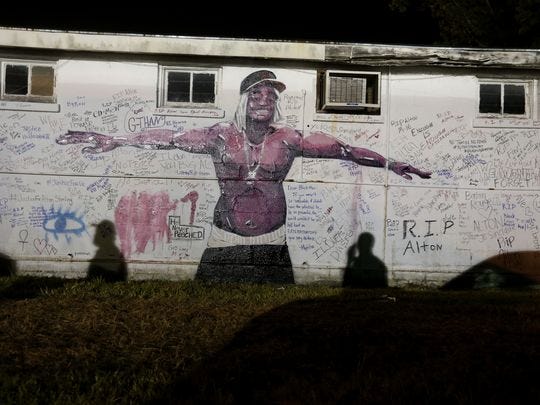
Family of Alton Sterling accepts $4.5 million settlement nearly 5 years after he was killed by police
The family of Alton Sterling, a Black man who was shot by police in Louisiana, has accepted a $4.5 million settlement nearly five years after his death.
Sterling, a 37-year-old father of five, was killed on July 5, 2016, by Baton Rouge police officers outside a convenience store. Video of his death sparked protests nationwide. Lawyers for Sterling’s children filed a wrongful death lawsuit against the city, its police department and former police chief, and the two officers involved in June 2017.
The officer who shot Sterling was fired in March 2018. He appealed that decision and in 2019 he was allowed to withdraw his termination and resign retroactively instead.
The officer who helped wrestle Sterling to the ground was suspended for three days. Neither was criminally charged.
The settlement “will allow the city to heal and provide a pathway for Mr. Sterling’s children to be provided for financially,” lawyers for the family said in a statement Friday.
Shadows fall on a newly painted mural of Alton Sterling next to the Triple S convenience store in Baton Rouge, La., July 6, 2016. Sterling, 37, was shot and killed outside the store by Baton Rouge police. (Photo: Gerald Herbert, AP)
The East Baton Rouge Metro Council rejected three settlement offers before approving the final agreement in February, just weeks before a trial was set to begin, the Advocate reported.
Court documents show the family moved last month to dismiss the lawsuit, which alleges the shooting was part of a pattern of racist behavior and excessive force by Baton Rouge police.
“This settlement is an important step for our community,” Mayor Sharon Broome said in a statement Friday. “As a community, we must work together to implement changes in policy and in our community to ensure that no other families in Baton Rouge will endure this loss, trauma, or heartbreak.”
Sterling’s children will receive $1 million upfront from the East Baton Rouge Parish’s insurance reserve funds, and the remaining money will be paid in equal installments pulled from the annual operating budget over the next four years, WBRZ-TV reported.
Contributing: The Associated Press
Follow N’dea Yancey-Bragg on Twitter: @NdeaYanceyBragg
Source: Read Full Article
